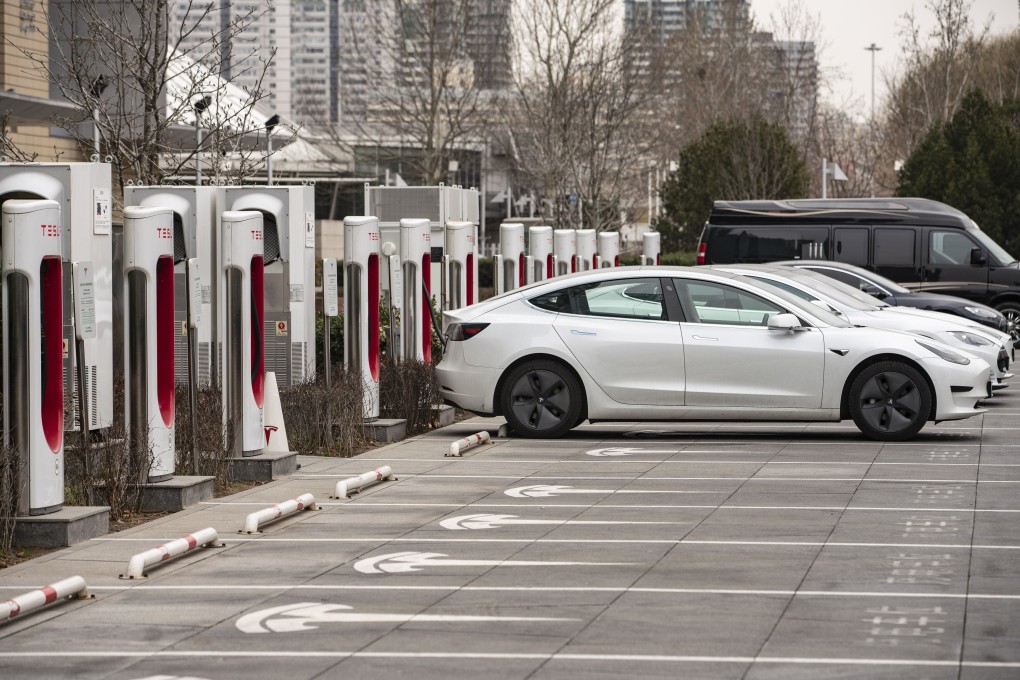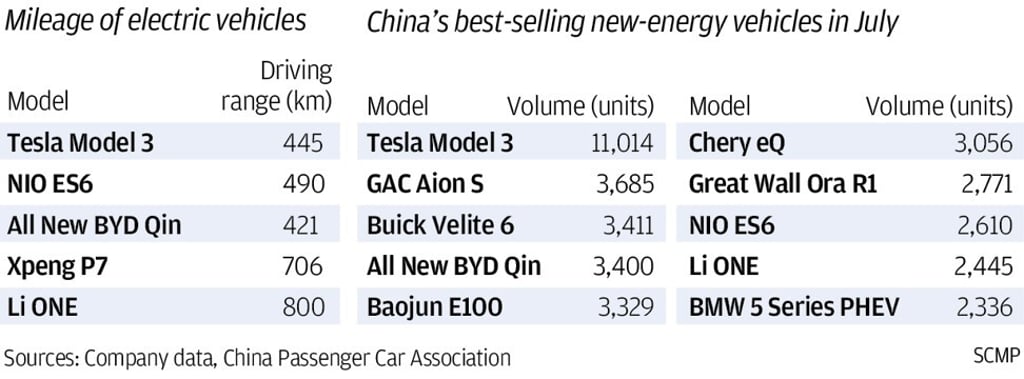Advertisement
China electricity-rich areas pivot to building EV charging piles after bitcoin mining ban, giving a leg up in electric car sales
- China’s ban on bitcoin mining saves more than 50 terawatt-hours of electricity, enough to power an industrial city of 1 million people for 33 years
- Southwestern province of Guizhou announced a plan to build at least 4,500 EV charging piles this year, 5,000 in 2022 and 5,500 in 2023
Reading Time:3 minutes
Why you can trust SCMP

China’s hydroelectric power capacity, left unused after the ban on cryptocurrency mining, has created the perfect opportunity for electric car (EV) changing networks to grow, creating the condition that could further bolster the popularity of so-called new-energy vehicles.
Advertisement
The ban on energy-sapping cryptocurrency mines saves more than 50 terawatt-hours (TWh) of electricity, enough to power an industrialised city with 1 million residents for 33 years , or support 10 million Tesla Model 3s a year in their once-a-week charging.
“It is a double dose of good news for China’s economy,” said Cao Hua, a partner at the private equity firm Unity Asset Management. “Cracking down on power-consuming bitcoin mines and using the excess capacity to support development of the future of mobility is the best example of how China endeavours to reach its carbon neutrality goal.”
The Chinese government’s ban on cryptocurrency mining, ostensibly over concerns of the amount of electricity they use to solve complex problems – known as “mining” – has forced provincial authorities in Guizhou, Qinghai, Inner Mongolia, Xinjiang, Yunnan and Sichuan to close server farms. The switch in capacity usage could be the game changer in the Chinese government’s plan to popularise EVs in the world’s largest vehicle market, where three of five vehicles on China’s roads could be powered by non-fossil fuels by 2030, according to a forecast by UBS, compared with a 50 per cent electrification target by the same year in the United States.
Advertisement
China’s rural areas, especially in the hydroelectric power-rich provinces of Sichuan and Yunnan, could use the abundant electricity to build enough charging stations to reduce the range anxiety of EV users.

Advertisement
